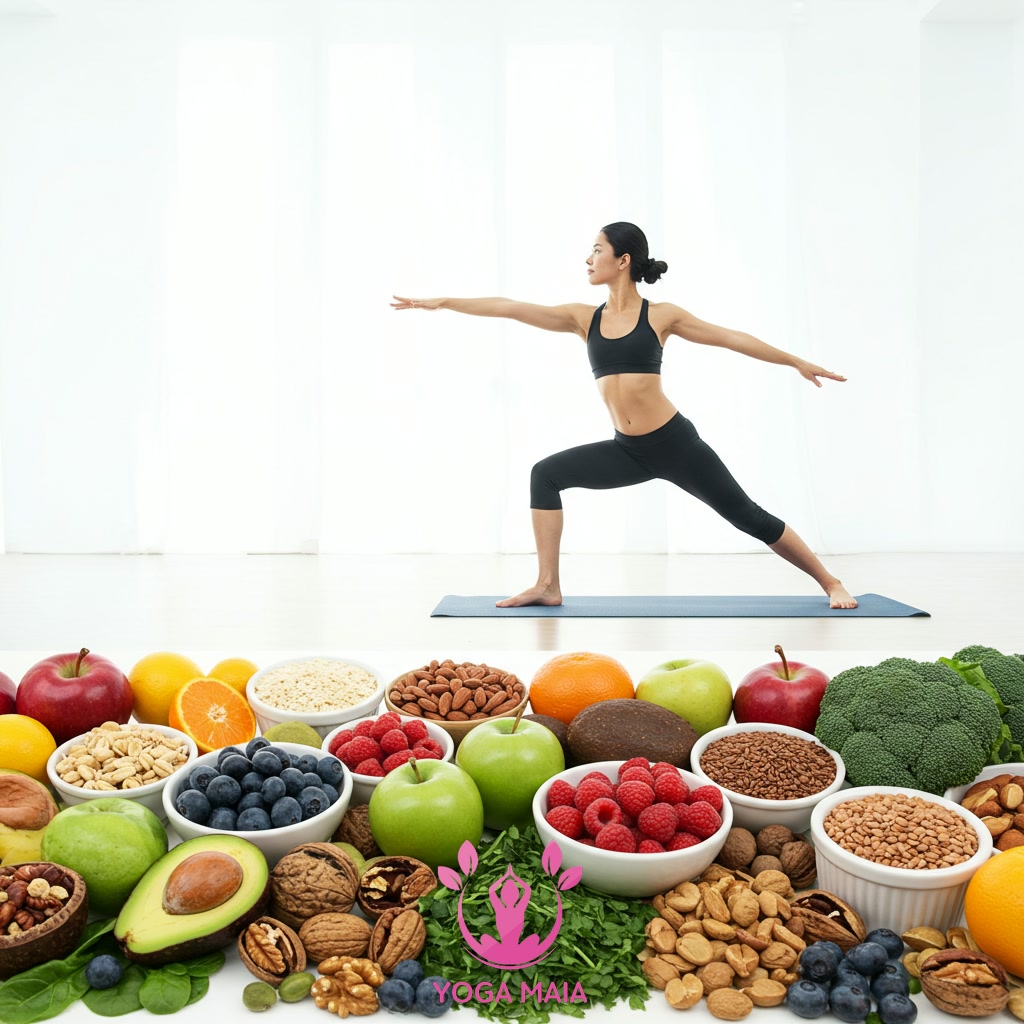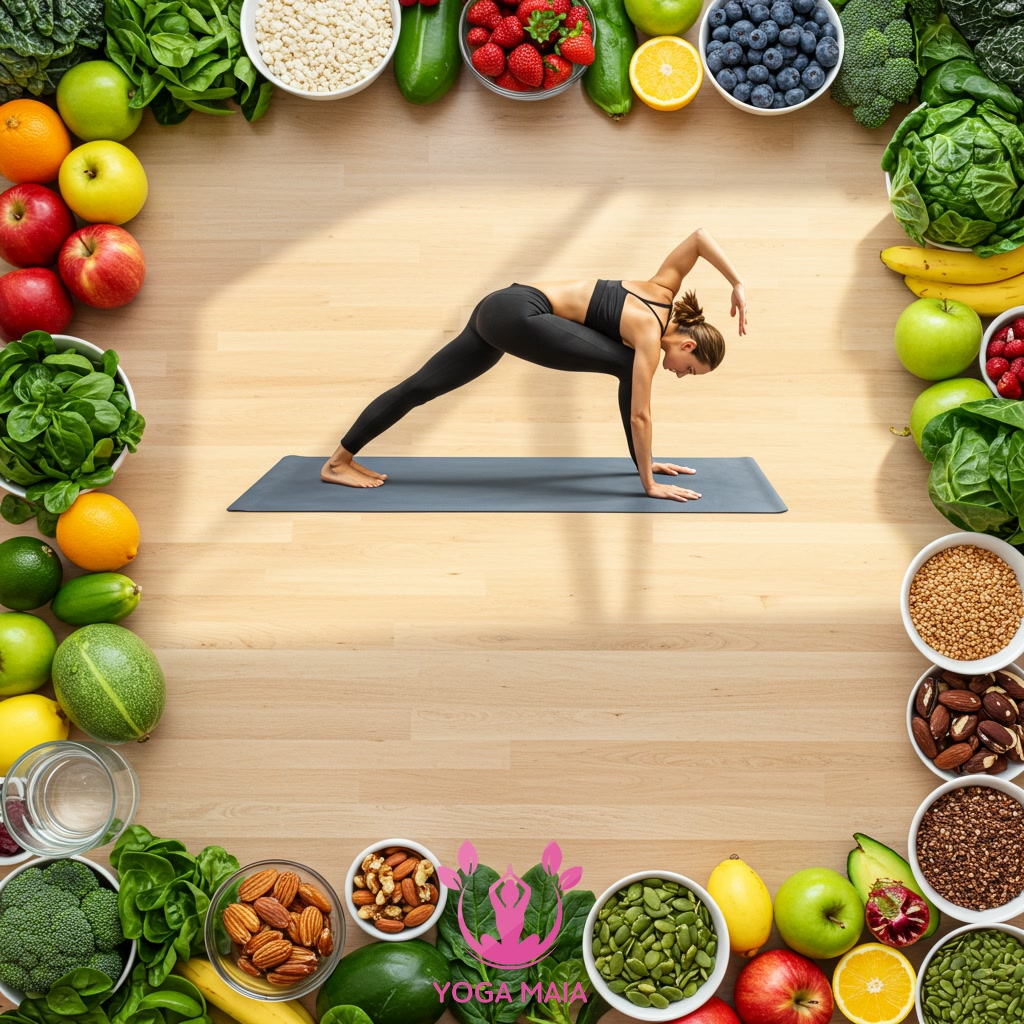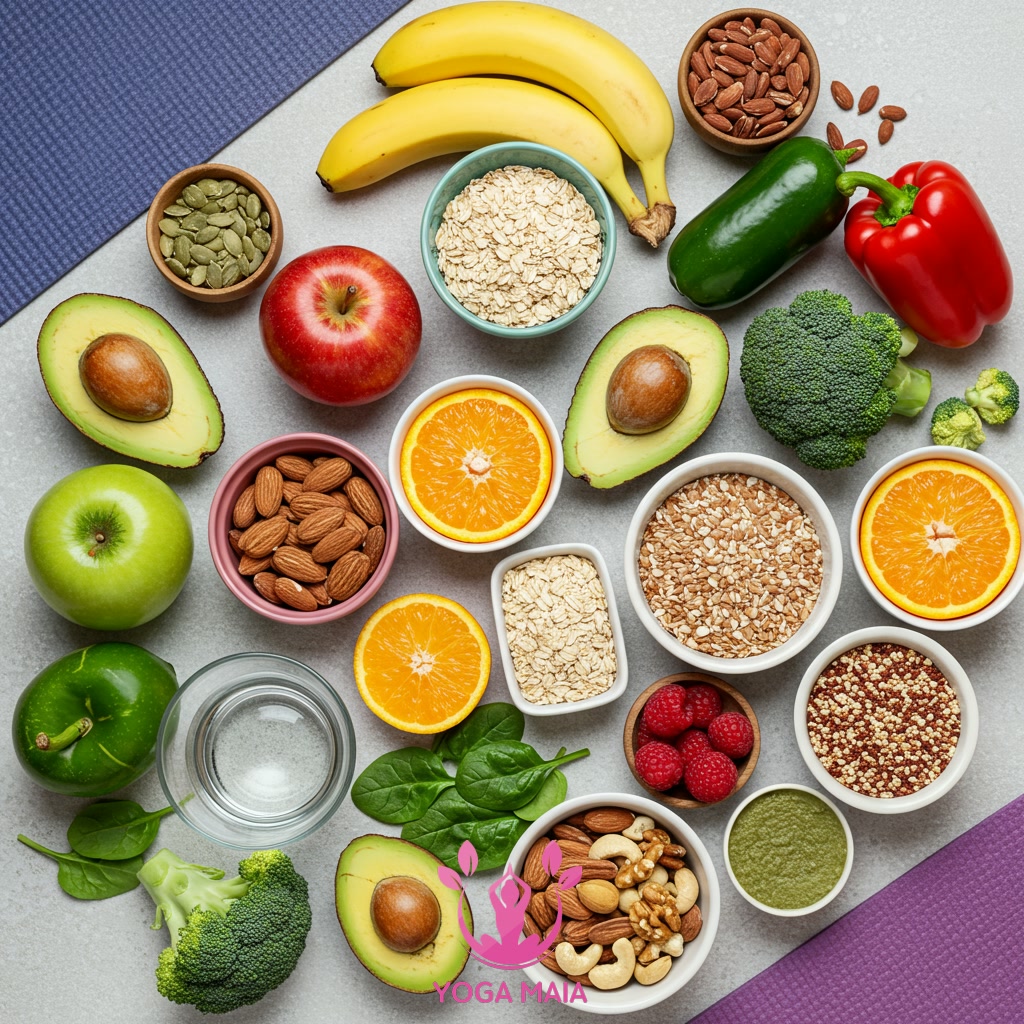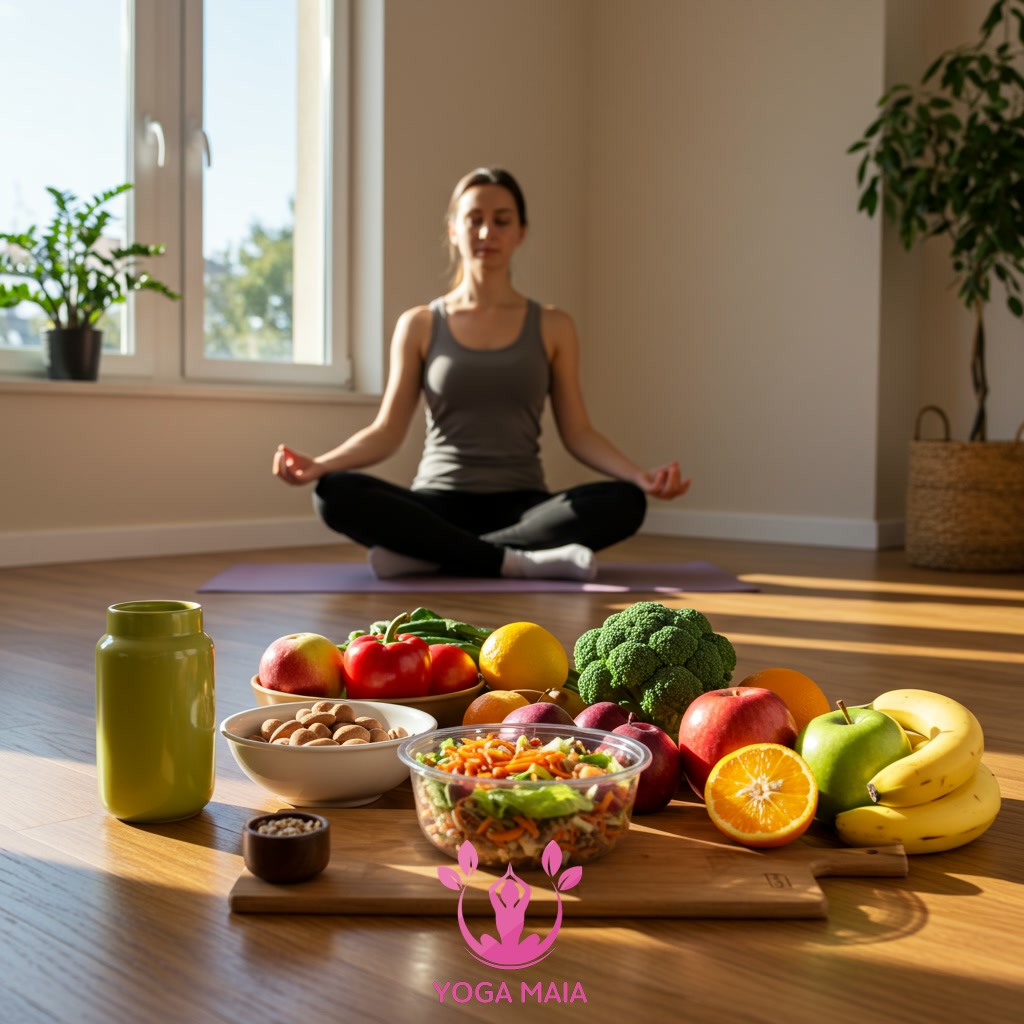Yoga Blog
Nourish Your Practice: How Diet Enhances Strength and Flexibility in Yoga

Diet plays a crucial role in enhancing physical capabilities for yoga practitioners. Proper nutrition provides the energy needed for challenging poses and aids muscle recovery, improving strength. A balanced diet can also contribute to tissue health and joint flexibility, making deeper stretches and poses more accessible. Integrating mindful eating habits alongside regular yoga practice can significantly elevate performance and physical well-being on the mat.
Table of Contents
- Section 1: The Mind-Body Connection: Why Diet Matters for Your Yoga Practice
- Section 2: Fueling Your Power: How Diet Enhances Strength in Yoga
- Section 3: Suppleness and Stretch: Diet’s Role in Improving Flexibility
- Section 4: Key Nutrients and Foods for Optimal Yoga Performance
- Section 5: Practical Dietary Strategies for Yogis: What, When, and How to Eat
- Section 6: Beyond the Mat: Integrating Nourishment into Your Yoga Lifestyle
Section 1: The Mind-Body Connection: Why Diet Matters for Your Yoga Practice
Understanding the mind-body connection is fundamental to appreciating why diet significantly impacts your yoga practice. Yoga is not merely a physical exercise; it’s a holistic discipline aiming for unity of mind, body, and spirit. What you consume provides the literal building blocks and energy for your physical form, directly influencing your ability to hold poses, transition smoothly, and recover. Beyond the physical, the nutrients you absorb affect brain function, mood, and energy levels, all of which are crucial for maintaining focus, presence, and a calm state of mind during your practice. A diet that nourishes your body supports a clear and steady mind, enabling deeper connection and a more profound experience on the mat. Conversely, poor nutrition can lead to sluggishness, irritability, and lack of concentration, hindering your ability to fully engage with the mental and spiritual aspects of yoga.
 The Mind-Body Connection: Why Diet Matters for Your Yoga Practice
The Mind-Body Connection: Why Diet Matters for Your Yoga Practice
Section 2: Fueling Your Power: How Diet Enhances Strength in Yoga
Building strength in your yoga practice relies heavily on the energy and building blocks you provide your body through diet. Just as a car needs fuel, your muscles need proper nutrients to perform challenging postures like arm balances or inversions. Carbohydrates are your primary energy source, providing the immediate power needed for dynamic sequences. Protein is crucial for muscle repair and growth, allowing your body to recover faster and build the necessary strength to progress in your practice. Micronutrients like vitamins and minerals also play a vital role in energy metabolism and overall muscle function. By consciously choosing nutrient-dense foods, you ensure your body has the resources required to sustain effort, build muscle resilience, and ultimately cultivate greater physical strength on the mat.
 Fueling Your Power: How Diet Enhances Strength in Yoga
Fueling Your Power: How Diet Enhances Strength in Yoga
Section 3: Suppleness and Stretch: Diet’s Role in Improving Flexibility
Following the discussion on fueling strength, diet also plays a pivotal role in enhancing the suppleness and stretch required for deeper yoga poses. While strength builds the foundation, flexibility allows for greater range of motion and ease in transitions. Certain nutrients are key to maintaining healthy connective tissues, such as ligaments and tendons, which are crucial for flexibility. Adequate hydration keeps tissues pliable, while anti-inflammatory foods, rich in omega-3 fatty acids and antioxidants, can reduce joint stiffness and discomfort, enabling you to move more freely and safely into stretches. By nourishing these vital components, your body becomes more receptive to lengthening and opening, making those challenging forward folds, backbends, and twists more accessible and comfortable over time.
 Suppleness and Stretch: Diet’s Role in Improving Flexibility
Suppleness and Stretch: Diet’s Role in Improving Flexibility
Section 4: Key Nutrients and Foods for Optimal Yoga Performance
To optimize your yoga practice, focusing on key nutrients is essential. Complex carbohydrates from sources like whole grains, fruits, and vegetables provide sustained energy needed for longer sessions and demanding poses. Protein is crucial for muscle repair and growth, directly supporting strength gains. Lean meats, legumes, nuts, and seeds are excellent sources. Healthy fats, particularly omega-3 fatty acids found in fish, flaxseeds, and walnuts, contribute to joint health and reduce inflammation, enhancing flexibility. Micronutrients like calcium and vitamin D are vital for bone density, supporting overall physical structure, while magnesium aids muscle function and relaxation. Hydration is also paramount; drinking enough water helps maintain tissue elasticity and supports metabolic processes, making your body more pliable and resilient on the mat.
 Key Nutrients and Foods for Optimal Yoga Performance
Key Nutrients and Foods for Optimal Yoga Performance
Section 5: Practical Dietary Strategies for Yogis: What, When, and How to Eat
Building upon the foundation of essential nutrients, practical dietary strategies for yogis involve mindful choices about what, when, and how to eat. Focus on whole, unprocessed foods like fruits, vegetables, lean proteins, and healthy fats to fuel your body efficiently. Timing is crucial: eat a light, easily digestible meal or snack 1-2 hours before practice to ensure energy without discomfort, and refuel with protein and carbohydrates within an hour after practice to aid recovery. Hydration is key throughout the day. Furthermore, cultivate mindful eating habits, paying attention to hunger cues and savoring each bite, which aligns with the present-moment awareness fostered in yoga.
 Practical Dietary Strategies for Yogis: What, When, and How to Eat
Practical Dietary Strategies for Yogis: What, When, and How to Eat
Section 6: Beyond the Mat: Integrating Nourishment into Your Yoga Lifestyle
Building on practical dietary choices, integrating nourishment into your yoga lifestyle transcends meal times, becoming a conscious practice woven into daily life. This involves consistent hydration, mindful preparation and consumption of food, and viewing eating as an extension of self-care cultivated on the mat. It’s about understanding how sustained healthy habits fuel your body for consistent practice, aid muscle recovery, and support mental clarity, enhancing both physical and subtle energy. By embracing this holistic perspective, where nourishing your body is as essential as your asana or meditation, you deepen your connection to overall well-being, ensuring your physical vessel is optimally supported for the journey of yoga, both on and off the mat.
 Beyond the Mat: Integrating Nourishment into Your Yoga Lifestyle
Beyond the Mat: Integrating Nourishment into Your Yoga Lifestyle












